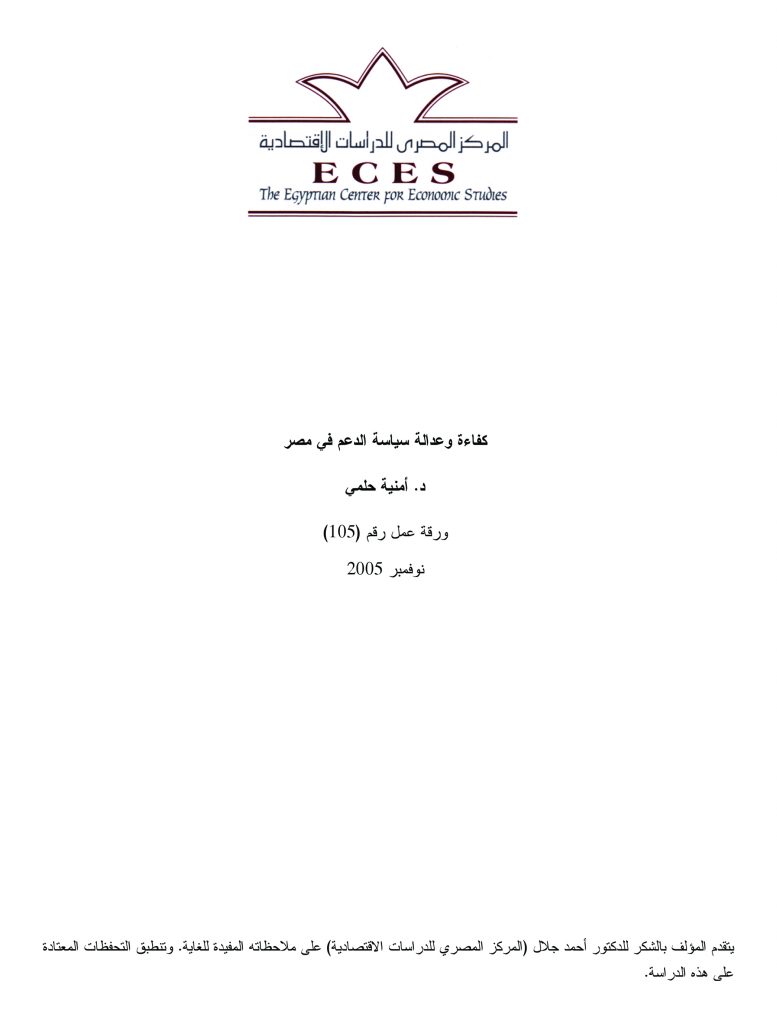Abstract:
This study assesses the efficiency and equity of the current subsidy policy in Egypt and offers options for reform. It shows that current implicit and explicit subsidies of commodities and social services have contributed to poverty alleviation. However, this has been achieved at a high cost, including increased burden on the treasury, price distortions and commodity arbitrage, and leakage of subsidies to non-target groups. To reform the current subsidy policy, the paper suggests better targeting and pricing mechanisms, and more efficient and equitable public spending on social services. Better yet, it makes the case for a gradual shift away from price-based subsidy to conditional cash transfers and a new wage policy.

